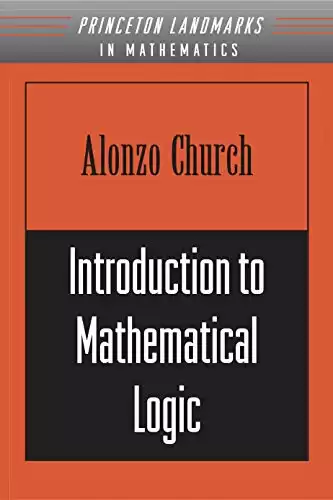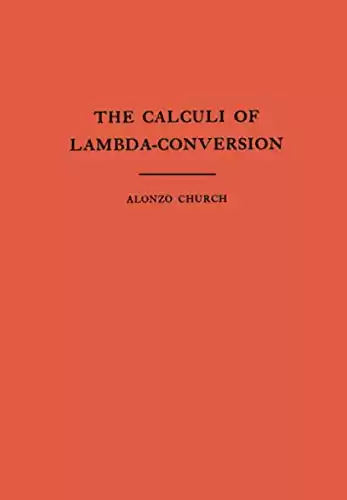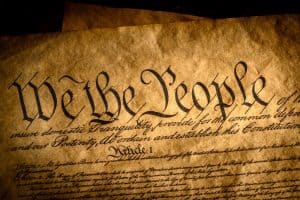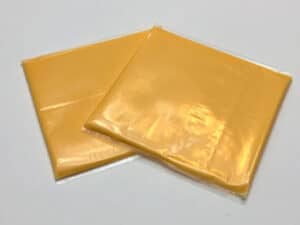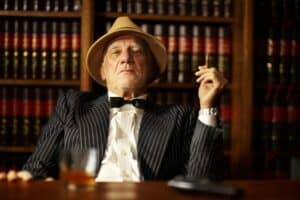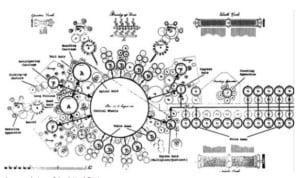Key Points:
- Alonzo Church was an American logician, mathematician, professor, and philosopher who contributed who invented the Lambda calculus.
- Church founded the Journal of Symbolic Logic in 1936 and edited its reviews section until 1979.
- He formulated Church’s theorem, which shows that any recursive definition can be given in terms of its eventual behavior rather than by defining it term-by-term.

Alonzo Church (June 14, 1903 – August 11, 1995) was an eminent US mathematician and logician with works of major importance in mathematical logic, recursion theory, and theoretical computer science. He is best known for the lambda calculus, Church-Turing thesis, proving the undecidability of the Entscheidungsproblem, Frege–Church ontology, and the Church–Rosser theorem.
In 1936, Church created a method for defining functions called the lambda calculus (λ-calculus). Within λ-calculus, he explained the encoding of the natu.
Quick Facts
- Full Name
- Alonzo church
- Birth
- June 14, 1903
- Death
- August 11, 1995
- Net Worth
- $2 million
- Awards
- election to the American Academy of Arts and Sciences in 1967
- election to the National Academy of Sciences and the British Academy in 1978
- Children
- Three
- Nationality
- American
- Place of Birth
- Washington, D.C
- Fields of Expertise
- [“Mathematics”,”Computer Science”,”Philosophy”]
- Institutions
- Princeton University, Harvard University, University of Göttingen, University of Amsterdam, Case Western Reserve University
- Contributions
- Created a method for defining functions called the lambda calculus (λ-calculus). Wrote the monograph The Calculi of Lambda-conversion, which was later useful to others in developing the semantics for programming languages, and Co-created the Church–Turing thesis. He also developed a number of important theories about computability theory which are still being used today.
Who is Alonzo Church?
Alonzo Church was an American logician, mathematician, professor, and philosopher who contributed significantly to the foundations of theoretical computer science and invented what became known as the Lambda calculus. He is also known for the Church–Turing thesis, proving the unsolvability of the Entscheidungsproblem, the Church–Rosser theorem, and the Frege–Church ontology.
Early life
Alonzo was born in Washington, D.C., on June 14, 1903, where his father, Samuel Robbins Church, was a Justice of the Peace (JP) and a judge in the Municipal Court. The family later moved to Virginia after his father lost his job due to health problems. With help from his uncle, Church attended Ridgefield School for Boys in Ridgefield, Connecticut.
In 1920, Church graduated from Ridgefield High School and attended Princeton University, where he was a brilliant student. He published his first paper on Lorentz transformations and graduated in 1924 with a degree in mathematics. Princeton University awarded him a Ph.D. in mathematics after three years of study under Oswald Veblen.
With the help of a two-year National Research Fellowship, he was able to study at Harvard University from 1927 – 1928, Göttingen University in 1929, and Amsterdam University in 1930. In connection with an international symposium held in his honor, he received honorary Doctor of Science degrees from Princeton University in 1985, Case Western Reserve University in 1969, and the State University of New York in 1990.
Career
Princeton University
From 1929 through 1967, he spent almost four decades at Princeton University instructing math and philosophy. He was promoted to Associate Professor in 1939 and to Professor in 1947, a position he held until 1961, when he became Professor of Mathematics and Philosophy. After retiring from Princeton in 1967, he became Kent Professor of Philosophy and Professor of Mathematics at the University of California. He continued teaching and undertaking research in Los Angeles until 1990, when he retired again, twenty-three years after he first retired! In 1992, he moved to Hudson, Ohio, where he spent the last three years of his life.
Other Projects
Church founded the Journal of Symbolic Logic in 1936 and edited its reviews section until 1979. Earlier in the Journal, he had published a paper entitled A Bibliography of Symbolic Logic, and the reviews section was meant to continue and expand upon this work. Here is a quote from the document where he explains its purpose. He wrote:
…This document’s purpose is to provide a complete, suitably indexed listing of all publications … in symbolic logic, wherever and in whatever language published … [giving] critical, analytical commentary.
What Did Alonzo Church Invent?
Lambda Calculus (λ-calculus)
In 1936, Church created a method for defining functions called the lambda calculus (λ-calculus). Within λ-calculus, he explained an encoding of the natural numbers called the Church numerals. A function on the natural numbers is called λ-computable if the corresponding function on the Church numerals can be represented by a term of the λ-calculus (equivalent to general recursive functions).
In the same year, before learning of Church’s work, Alan Turing (Turing arrived at Princeton in 1936, and Alonzo Church was Turing’s Ph.D. Advisor) created a theoretical model for machines, now called Turing machines, that could carry out calculations from inputs by manipulating symbols on a tape. Given a suitable encoding of the natural numbers as sequences of symbols, a function on the natural numbers is called Turing computable if some Turing machine computes the corresponding function on encoded natural numbers.
Church–Turing Thesis
The Church–Turing thesis is a mathematical hypothesis that states that a Turing machine can compute any function which can be computed by an algorithm. The thesis was first stated by Alonzo Church in 1936 and later popularized (and generalized) by Alan Turing in his seminal paper on computability. It asserts that there are no functions computable by an algorithm other than those computable by a Turing machine.
In computability theory, the Church–Turing thesis is a hypothesis (“thesis”) about the nature of computable functions. In simple terms, the Church–Turing thesis states that a function on the natural numbers is computable in an informal sense (i.e., computable by a human being using a pencil-and-paper method, ignoring resource limitations) if and only if it is computable by a Turing machine.
Church’s Theorem
As a mathematician, Church is known for formulating the concept of the recursive function and proving what has come to be known as Church’s theorem, which shows that any recursive definition can be given in terms of its eventual behavior rather than by defining it term-by-term. As a logician, he introduced the notion now called the membership problem or the word problem. His generalization of Bertrand Russell’s set theory had some influence in the mid-20th century before being superseded by Quine’s New Foundations. His other main contribution to philosophy was his formulation of the so-called Churchian position on metaphysical issues, according to which one must believe all propositions about sets of natural numbers if one believes in the axioms of arithmetic; this view came to dominate discussion among mathematicians and philosophers after World War II.
Alonzo Church: Marriage, Children, and Personal Life
Net Worth
Alonzo Church’s estimated net worth is $ 2 Million, and his primary income was from his jobs as a computer scientist, philosopher, university instructor, and mathematician.
Marriage
Alonzo Church married Mary Julia Kuczinski in 1925.
Children
Alonzo Church, together with his wife Mary, had three children; Alonzo Church, Jr. (1929), Mary Ann (1933), and Mildred (1938).
Death
Church died on August 11, 1995, at 92 and was buried in Princeton Cemetery.
Alonzo Church: Awards and Achievements
Among the many awards that Church received were his election to the American Academy of Arts and Sciences in 1967 and his election to the National Academy of Sciences and the British Academy in 1978. As one of his colleagues remembered, “Church read everything and forgot nothing.” When asked what made Church a world-class scholar, he had a remarkably simple answer: “He was just smarter than anybody else.”
Alonzo Church: Published Works and Books
Introduction to Mathematical Logic (1944)
The Calculi of Lambda-Conversion (1941)
- Used Book in Good Condition
A Bibliography of Symbolic Logic, 1666–1935
Alonzo Church Quotes
- “The only thing that might have annoyed some mathematicians was the presumption of assuming that maybe the axiom of choice could fail and that we should look into contrary assumptions.”
- “I tried reading Hilbert. Only his papers published in mathematical periodicals were available at the time. Anybody who has tried those knows they are very hard reading.”
- “Well, it was not exactly a dissertation in logic, at least not the kind of logic you would find in Whitehead and Russell’s Principia Mathematica, for instance. It looked more like mathematics; no formalized language was used.”
Up Next…
- The History of Colossus Computer Find out everything there is to know about Colossus supercomputer.
- The Best 10 Robotics YouTube Channels There’s a lot of valuable resources for those interested in robotics. We’ve provided our top 10 picks of the best robotics channels on Youtube.
- Steve Jobs — Complete Biography, History and Inventions Learn about the tech pioneer Steve Jobs in this fascinating biography.
